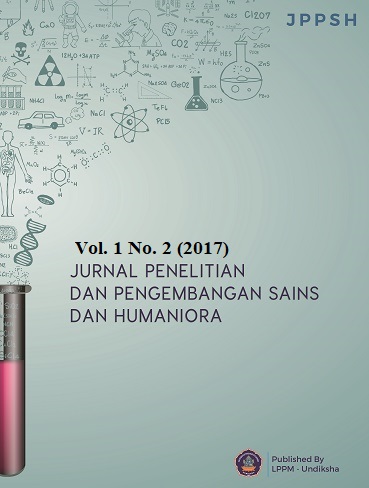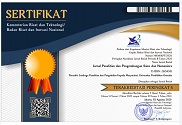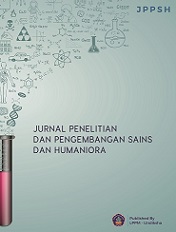Hubungan Kepemimpinan Situasional, Motivasi Kerja, dan Iklim Kerja dengan Kinerja Guru
DOI:
https://doi.org/10.23887/jppsh.v1i2.12990Abstract
This research aimed to investigate: 1) the relationship between situational leadership and teachers’ performance, 2) the relationship between working motivation and teachers’ performance, 3) the relationship between working climate and teachers’ performance, 4) The relationship among situational leadership, working motivation, and working climate on the performance of teachers of public junior high school. The population is 98. This research used census study with the design of expost-facto. The data were collected using the questionnaire. The data were analyzed using multiple regressions. The results of the research show that there is a positive and significant relationship between: 1) situational leadership and teachers’ performance with the contribution of 39,5%, 2) working motivation and teachers’ performance with the contribution of 69.1%, 3) working climate and teachers’ performance with the contribution of 55.0%, 4) situational leadership, working motivation, and working climate on the performance of teachers of public junior high school in Negara Subdistric with the coantribution of 77.1%.Downloads
Published
2018-01-11
Issue
Section
Articles
License
Authors who publish with the Jurnal Penelitian dan Pengembangan Sains dan Humaniora agree to the following terms:
- Authors retain copyright and grant the journal the right of first publication with the work simultaneously licensed under a Creative Commons Attribution License (CC BY-SA 4.0) that allows others to share the work with an acknowledgment of the work's authorship and initial publication in this journal.
- Authors are able to enter into separate, additional contractual arrangements for the non-exclusive distribution of the journal's published version of the work (e.g., post it to an institutional repository or publish it in a book), with an acknowledgment of its initial publication in this journal.
- Authors are permitted and encouraged to post their work online (e.g., in institutional repositories or on their website) prior to and during the submission process, as it can lead to productive exchanges, as well as earlier and greater citation of published work. (See The Effect of Open Access)










